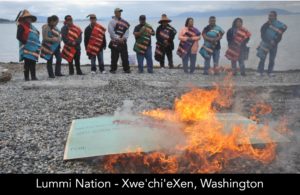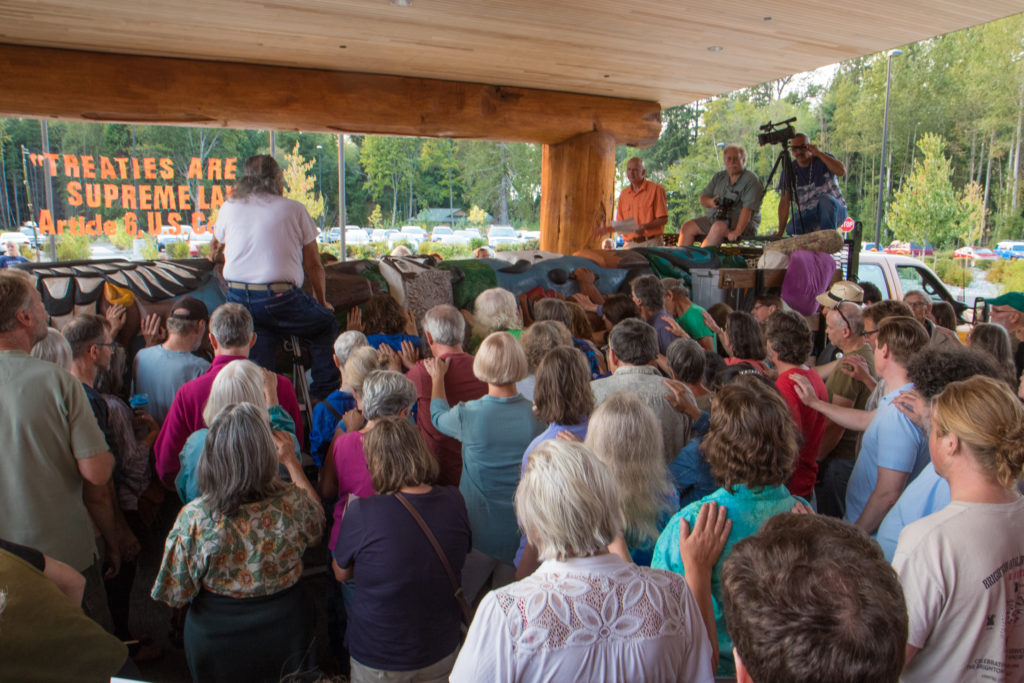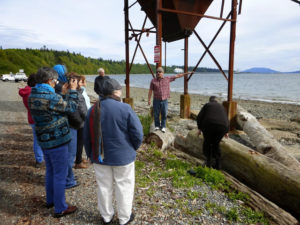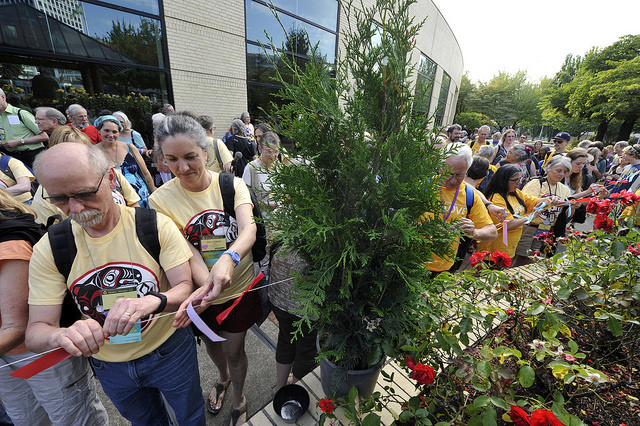 Lummi Nation, Lhaq’temish, is one of the numerous tribes of the Coast Salish Peoples. They are a federally recognized Nation by the 1855 Treaty of Point Elliott and have a reservation in north Bellingham, Washington.
Lummi Nation, Lhaq’temish, is one of the numerous tribes of the Coast Salish Peoples. They are a federally recognized Nation by the 1855 Treaty of Point Elliott and have a reservation in north Bellingham, Washington.
In 2005, through the efforts of Beth Brownfield, the Bellingham Unitarian Fellowship began building a relationship with Lummi Nation. Lummi members have spoken at adult sunday forums, been part of our food bank program, conducted services and participated in a number of social and environmental events.
Some of the larger projects that UUs particularly the Bellingham Unitarian Fellowship and Lummi have worked on together include:
Opposition to the Gateway Pacific Terminal
Totem Pole Journeys

For many years, Lummi House of Tears Carvers has been creating healing Totem Poles that journey to communities across the nation. Each Totem Pole is carved with a message and a prayer for a special circumstance within a given community. The Totem Pole is then taking on a journey, making stops along the way for others to imbue it with their prayers, blessings and hopes. Each blessing stop brings together social justice organizations, environmental groups, diverse faith communities, public servants and concerned individuals in a time of deep reflection. Since 2013, the Totem Poles have focused on those communities being impacted by the fossil fuel industry and it’s negative impact on our air, water, land and our human and natural communities. UU individuals and congregations across the nation have been invited to and participated in blessing stops that journey into their communities in the U.S. and Canada.
For more detailed information on the Totem Pole Journeys see our Totem Pole Journeys page.
College of Social Justice
 The UU College of Social Justice did two programs with Lummi Nation, one in 2015 and again in 2016. This program brought together UUs and others to spend a week in dialogue with the sovereign people of the Lummi Nation in Washington State.
The UU College of Social Justice did two programs with Lummi Nation, one in 2015 and again in 2016. This program brought together UUs and others to spend a week in dialogue with the sovereign people of the Lummi Nation in Washington State.
During that time participants heard from Lummi leaders, elders, activists and staff and discussed Lummi history, culture and the broken promises that characterize U.S. policy towards First/American Indian Nations. They explored the Christian Doctrine of Discovery and its impact on indigenous Nations. They discussed the impacts of Federal Indian policies, acts, and practices on the Lummi people and the history of U.S. and American Indian Nations relations in general. They heard about injustices confronting native people within North America and were exposed to the heart-deep trauma native people carry with them and the resiliency in which native cultures have survived. They learned about the Lummi Nation’s leadership in the struggle to protect land, air and water from the ravages of the extraction industry and the ways other Nations and Tribes are organizing, particularly for climate justice. Particular emphasis was placed how individuals and UU communities can be in right relation with First/American Indian Nations.
